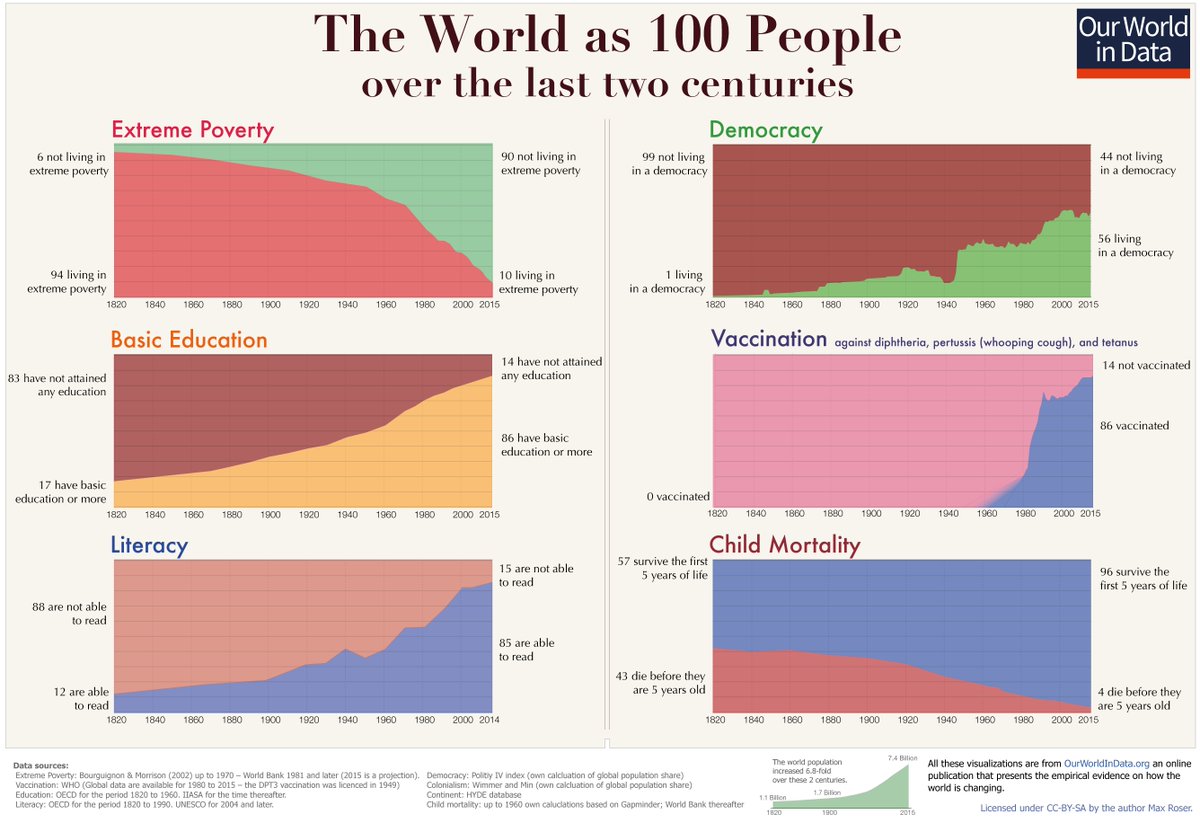haxxiy said:
It's not the best time to be anything else in the planet, though. Your "best time ever to be human" coincides with:
The largest mass extinction in 64 million years; dwindling populations precisely were people are better instructed, and nurture more democratic and environmental values; soaring crime rates elsewhere; a boom on depression and other mental ilnesses; and lower growth than anytime in the last 100 years; slower technological progress, despite popular belief (held as such even by someone like Elon Musk); an increase on genetic diseases; top soil degradation; and possibly the end of antibiotics in the coming decades.
Not to mention the "democracy" graph seems misleading. By 1900 almost every country in Europe was a constitutional monarchy, and Europe had over a third of the world's population by then. I would wager the average citizen felt better represented than many people today at certain south american or african countries that might be deemed "democracies" on that graph.
|
Sorry, but no.
First, the level of "democracy" in most European countries at the beginning of the XXth century would be ridicously low for today standards. Even in the most advanced democracies large percentages of population (all women, for example) were unable to vote, and in most countries the Governments had semiauthotitarian powers in order to avoid the Parlamentary rule. Indeed, even those who could vote would face in many cases a very controlled electoral system with a great degree of fraud. Modern constitutional states wouldn't start to work until the end of the Great War and, later, the II WW.
Also, I suppose that you're counting European colonies as part of Europe... Sadly, people in those countries didn't have any democratic right, so they weren't represented at all. Usually the colonial powers exploded local population with the same institutions that would later be used - and sadically perfectioned - by African dictators.
Finally, about the South American note... Do you really believe that the democratic degree of South America hasn't increased. I know the political situation in Brazil is not optimal but I think the situation is still miles better than not so many years ago, without voting rights and with constant violation of human rights... The same goes for Argentina, Chile or most countries in the region.


























































